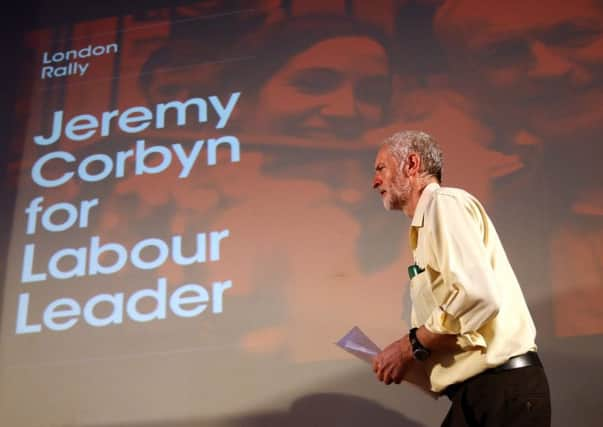Leaders: This democratic deficit is not sustainable


To be fair, this past week has been relatively lively, with Jeremy Corbyn stating he would be prepared to enter an agreement with the SNP in the event of a hung parliament at the next election. This pledge came days after Mr Corbyn backed an SNP call for opposition parties to stop nominating new members for the House of Lords, in a bid to force reform.
This rapprochement continued yesterday when rival candidate Yvette Cooper supported the proposed freeze on peers. Ms Cooper stepped up her campaign with an attack on David Cameron, accusing the Prime Minister of undermining the UK constitution through his plans for English votes for English laws and calling for a constitutional convention.
Advertisement
Hide AdAdvertisement
Hide AdMs Cooper is to be applauded for taking the Prime Minister to task on these matters, because there is an increasing feeling Mr Cameron is paying no more then lip service to the startling changes in the political landscape which have been exposed by last year’s independence referendum and this year’s general election. When Mr Cameron strode towards his microphone outside No 10 on the morning of 19 September, he spoke about recognising that change would be required. The approach seemed conciliatory and hinted at a willingness to listen, but this unravelled with an attempt to force English votes for English laws through parliament without as much as a debate.
On the issue of the House of Lords, Mr Cameron fares little better. Reform is essential if the public is to believe the antiquated Lords is necessary or desirable in 2015, but the Prime Minister has indicated he would prefer to increase the number of peers to up to 1,000 rather than prune its existing number of unelected representatives.
Recent political events have revealed a democratic deficit which the Prime Minister has a responsibility to address, whether it is in his party’s interests or not. A system of federal parliaments, including one for England of course, and incorporating a UK parliament, is worth exploring. Whether a constitutional convention is necessary to get us there is a matter of debate, because its creation and function would take up time that is already running short.
With a majority in the Commons, Mr Cameron has the opportunity to implement change that will appease the electorate, by and large on his own terms. Compromise may be required, but that is more likely to benefit his party in the long run than the winner-takes-all attitude which is a dangerous temptation after victory.
Mr Cameron can, of course, do what he likes, but the political reality is that he has no choice but to accept the constitution must change.
Witnesses deserve justice too
APPEARING as a witness in court is often an unpleasant experience for those who come forward with evidence that is believed to be pertinent to the pursuit of justice.
The process of cross-examination means there is every chance the honesty and integrity of the witness will be attacked in an attempt to discredit the information. It’s how the system works. One side presents the witness as purveyor of truth; the other side will, at best, seek to demonstrate that person as unreliable; at worst, a liar.
This can be a very uncomfortable process to watch. For many witnesses, there has been a reluctance to appear in court in the first place, fearing intimidation, reprisal, embarrassment and humiliation because of an unwanted connection with the accused. When that person is torn to shreds by a court lawyer, the chances of justice being done are diminished.
Advertisement
Hide AdAdvertisement
Hide AdNot before time, Lord Carloway has warned lawyers about aggressive questioning of vulnerable witnesses. One example highlighted how questioning of a witness deteriorated into direct insults of her character.
It is inevitable some witnesses will have a rough ride, and there is no suggestion that testing of evidence should not be robust, but lawyers have a responsibility to respect dignity. That extends to judges, who should feel able to intervene when a tone of questioning is unacceptable.
The small world of Scotland’s courtroom lawyers will be well aware of Lord Carloway’s remarks. It is up to them to ensure their conduct is responsible; and if they ignore the warning, it is they who should feel the disdain and reproval of the judge or sheriff.